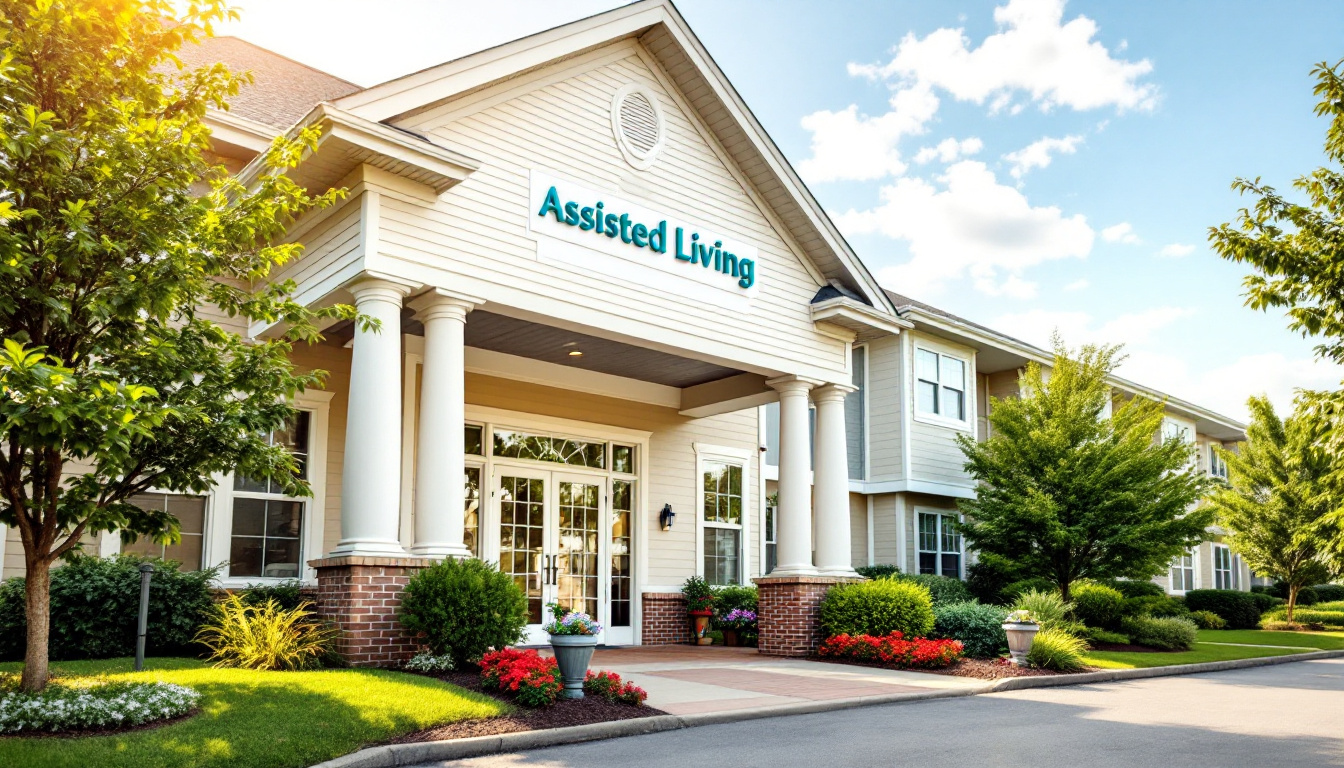How to Balance Independence with the Need for Assistance in Senior Care
Empowering Seniors: Achieving Independence in Care Settings

Introduction
Balancing independence and the need for assistance in senior care is a complex yet crucial part of ensuring a high quality of life for older adults. As people age, they face challenges that can limit their ability to live independently. However, maintaining a sense of autonomy profoundly impacts their emotional, psychological, and physical well-being. Various strategies and resources can support seniors in preserving their independence while balancing necessary support, ultimately enriching their lives and respecting their dignity.
Strategies for Maintaining Senior Independence

What are some strategies to help seniors maintain their independence while receiving support?
To help seniors maintain their independence while receiving support, it’s essential to implement a variety of tailored interventions. Here are several strategies:
Cognitive Training
Engaging seniors in cognitive training activities can help enhance their mental agility, memory, and problem-solving skills. This can include puzzles, memory games, or even online brain-training programs, which foster mental resilience and independence.Physical Exercises
Regular exercise is crucial for seniors to maintain mobility, strength, and overall health. Encouraging activities such as walking, stretching, or yoga, adjusted to their abilities, can significantly improve their physical function and confidence in performing daily tasks.Social Connections
Maintaining social connections can combat feelings of isolation and loneliness, which often accompany aging. Activities that promote social engagement, such as book clubs, group outings, or volunteer opportunities, can enhance their emotional well-being and provide a sense of community.Community Engagement
Seniors should be encouraged to participate in local community events or classes. This helps them feel valued and connected while improving their sense of purpose and belonging.Technology Use
Familiarizing seniors with technology can facilitate greater independence. Tools like video calls, social media, and safety devices (such as home monitoring systems) empower seniors to stay connected with family and friends while ensuring their safety in their living environment.
By combining these strategies, caregivers can help foster an environment that allows seniors not only to maintain their independence but also to thrive emotionally and physically.
Encouraging Independence During Personal Care

What are acceptable ways to encourage independence while assisting seniors with personal care?
Encouraging independence while assisting seniors with personal care involves several supportive strategies. First, positive communication is essential. Praise their efforts and achievements, no matter how small, to boost their confidence. Positive reinforcement helps seniors feel valued and respected while fostering a sense of independence.
Next, task involvement plays a critical role. Engage seniors in their care routines by inviting them to participate in activities suitable for their abilities. Breaking tasks into manageable steps allows them to contribute as much as possible. For example, let them choose what to wear or assist in meal preparation, which can empower them to feel more in control of their daily life.
Equally important is ensuring their safety. Create a hazard-free environment by removing obstacles and installing assistive devices. This allows seniors to navigate their surroundings with confidence, knowing that they have the necessary support to remain safe while pursuing their independence.
Lastly, involve seniors in decision-making processes. Offering choices in their care routines reinforces their autonomy and self-worth, helping them maintain a sense of control over their lives. Allow them to voice their preferences regarding activities and care, which significantly contributes to their emotional well-being and independence.
Promoting Independence in Health and Social Care Settings

How can caregivers promote independence in health and social care settings?
Caregivers play a vital role in promoting independence within health and social care settings. A foundational approach is to foster positive relationships with individuals receiving care. By building trust and open communication, caregivers can better understand the needs, preferences, and abilities of their clients.
Encouraging active participation in care decisions
An essential aspect of promoting independence is encouraging individuals to take an active role in their care. Caregivers should guide seniors in making choices regarding their daily routines and treatment plans. This empowerment aligns with policies like the Promoting Independence Policy in Devon, which prioritizes maintaining personal autonomy as long as possible. A proactive approach helps seniors feel involved and valued, reinforcing their self-worth.
Engaging in community activities
Community activities are crucial in enhancing the independence of older adults. Caregivers should assist individuals in participating in local events or services tailored to their interests. This not only fosters social connections but also nurtures a sense of belonging and community support. By focusing on each senior’s personal strengths and interests, caregivers can encourage further engagement, whether through hobbies, volunteer work, or social outings.
Ultimately, caregivers must tailor interventions to meet varying levels of need, providing universal support for those with minimal care requirements and more intensive assistance for those at risk of dependency. Promoting independence significantly empowers individuals while also working to delay the escalation of health and care needs, consistent with the principles outlined in the Care Act 2014.
Responding to Seniors' Assistance Needs

What should be done if an elderly person needs assistance in maintaining independence?
If an elderly person shows signs of needing assistance, the first step is to observe any changes in their daily activities. Common indicators include having difficulties with meal preparation, personal hygiene, or chores around the house. These signs often suggest a growing need for support.
Engaging in open discussions about their needs is crucial. Conversations should encourage seniors to express their thoughts on how they wish to be assisted, ensuring they remain part of the decision-making process.
Considering home health aides can be beneficial. These professionals specialize in providing personal care and assistance with medical needs, tailored to the individual’s requirements. Alongside home health services, exploring community services that offer transportation or meal deliveries can significantly enhance a senior's autonomy and access to vital services.
It is also important to monitor mental health closely. Keep an eye out for signs such as confusion, memory problems, or feelings of depression. Addressing these issues may require professional intervention, especially if they impact their daily living significantly.
Lastly, encourage regular social engagement and physical activity. Participating in community events or keeping in touch with friends can improve their overall mental and physical health, fostering a more independent lifestyle.
Here’s a summary of key approaches covered:
| Approach | Description | Benefits |
|---|---|---|
| Observation of changes | Look for daily life challenges to identify needs | Highlights areas where support is necessary |
| Home health aides | Hire professionals for personal and medical care | Provides tailored support |
| Community services | Explore local support for transportation and meals | Enhances access to essential services |
| Mental health monitoring | Watch for signs of confusion or depression | Addresses emotional well-being and cognition |
| Social engagement | Encourage connection with family and friends | Improves mental health and independence |
Emotional and Psychological Benefits of Independence in Elderly Care

How do the emotional and psychological benefits of promoting independence manifest in elderly care?
Promoting independence in elderly care significantly enhances emotional and psychological well-being. One of the foremost benefits is increased self-esteem. When seniors participate in daily activities such as dressing and cooking, they experience a stronger sense of control and autonomy. This empowerment dramatically reduces feelings of helplessness and can alleviate depression.
Another critical factor is the impact on mental health. Engaging in activities tailored to their abilities allows seniors to maintain connections with their community and reinforces their sense of self-worth. Furthermore, encouraging seniors to take part in social events can combat feelings of isolation, enhancing their emotional well-being.
Cognitive engagement is also crucial; it promotes cognitive health while improving practical skills. By offering activities that provide mental stimulation, caregivers help seniors maintain their cognitive functions, thus fostering a sense of purpose that contributes to their overall happiness.
Lastly, independence in elderly care offers benefits to caregiver support. When seniors can manage tasks themselves, caregivers experience less burnout. This balance allows caregivers to focus on providing support rather than micromanaging, ultimately leading to a more nurturing and effective caregiving environment. Therefore, fostering independence is not just beneficial for seniors; it enhances the overall caregiving experience and significantly uplifts the quality of life for all involved.
Choosing the Right Care Options for Supporting Senior Independence
Personalized Care Plans
Creating a personalized care plan is vital for any senior receiving long-term care. Such plans ensure that individuals receive assistance tailored to their specific needs and preferences. These plans promote independence by providing the right level of support, helping seniors maintain dignity while engaging in daily activities they can manage themselves. Regular reviews of these plans are essential to adapt to any changes in health or personal preferences.
Home Care
Home care serves as a compelling option for many seniors, allowing them to live in familiar surroundings while receiving necessary support. Home health aides assist with daily tasks like personal hygiene, meal preparation, and medication management. This setup not only empowers seniors to maintain their independence but also enhances their emotional well-being by fostering connections with family and friends in a comfortable environment. Moreover, it can be more cost-effective compared to residential options.
Assisted Living
Assisted living communities provide a balance of support and autonomy for seniors who may need help with daily activities yet don’t require extensive medical care. These environments often feature various social activities that encourage engagement, which is critical for maintaining mental and emotional health. Residents can enjoy their independence while receiving help with transportation, personal care, and social interaction, thereby enhancing their overall quality of life.
Conclusion
Promoting independence in senior care is not just about providing the minimum level of assistance required but creating an environment that respects and enhances autonomy. Each interaction with caregivers should consider the older adult's abilities and dignity, fostering a higher quality of life. Implementing personalized and flexible care solutions, encouraging social and physical activities, and removing barriers to independence are crucial steps in achieving this balance. As caregivers, family members, and communities, supporting seniors' independence requires concerted efforts to ensure that aging with grace is possible for all.
References
- Balancing Independence and Support in Long-Term Senior Care
- Independent living with home care assistance - Harvard Health
- Senior Care: A Balancing Act of Independence and Support
- 8 Ways to Help Seniors Balance Support and Independence
- How to Find the Perfect Balance between Independence and Support
- Senior Independence: How Caregivers Can Help Promote It
- Promoting Independence and Support for Seniors
- How Home Health Care Promotes Independence and Well-being






































































































